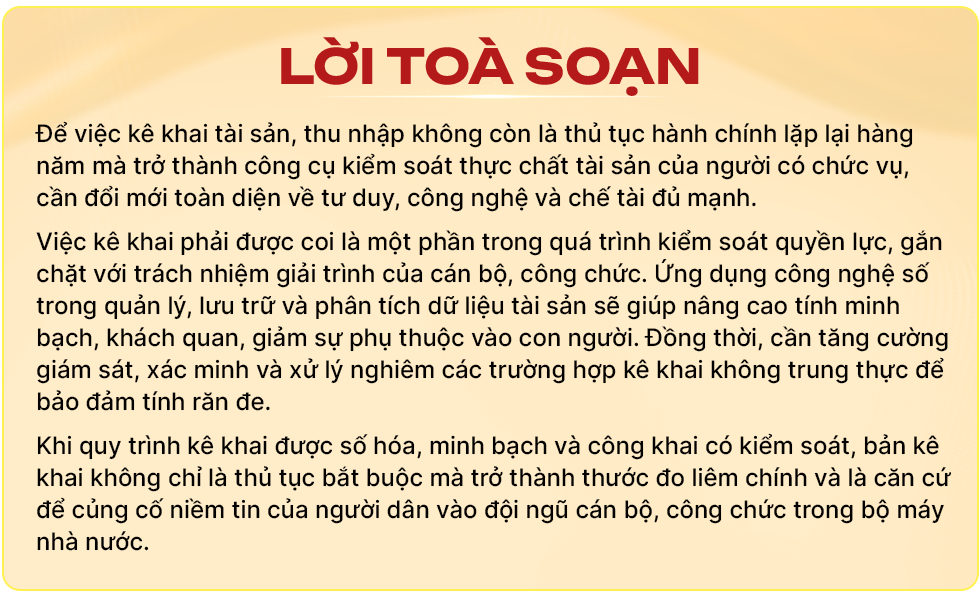
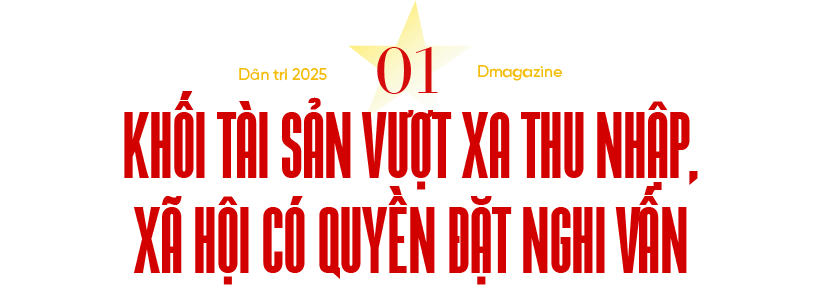
Talking to Dan Tri reporter about solutions to plug the "loophole" so that the declaration of assets of officials is not a formality, Mr. Tran Van Long, Deputy Head of the Legal Department ( Government Inspectorate ), said that the current control of assets and income is based on three pillars: declaration - publicity - verification.
Mr. Long emphasized that this mechanism is considered the "backbone" in preventing corruption, helping authorities grasp the origin of assets, detect and prevent acts of concealing illicit assets.
However, Mr. Long noticed that many declarations were still formal, while the verification process was not really effective. Some cases such as Mr. Le Duc Tho, former Secretary of the Ben Tre Provincial Party Committee (now Vinh Long Province), Ms. Nguyen Thi Giang Huong (Dong Nai), Mr. Nguyen Van Do (Ca Mau) being disciplined for dishonest declarations are warning bells showing that the current mechanism is not strong enough to deter.
According to the Government 's anti-corruption report, the results of the verification of assets and income in 2024 showed that 9,092 people were verified. Of these, 4,501 cases had errors such as incorrect declaration forms, missing information, not ensuring instructions or late submission compared to regulations. 7 people were disciplined for dishonest declaration, with forms ranging from warnings to dismissal.
Regarding the handling of responsibility of leaders when corruption occurs, ministries, branches, localities and units continue to strictly implement regulations on responsibility in corruption prevention and control work.
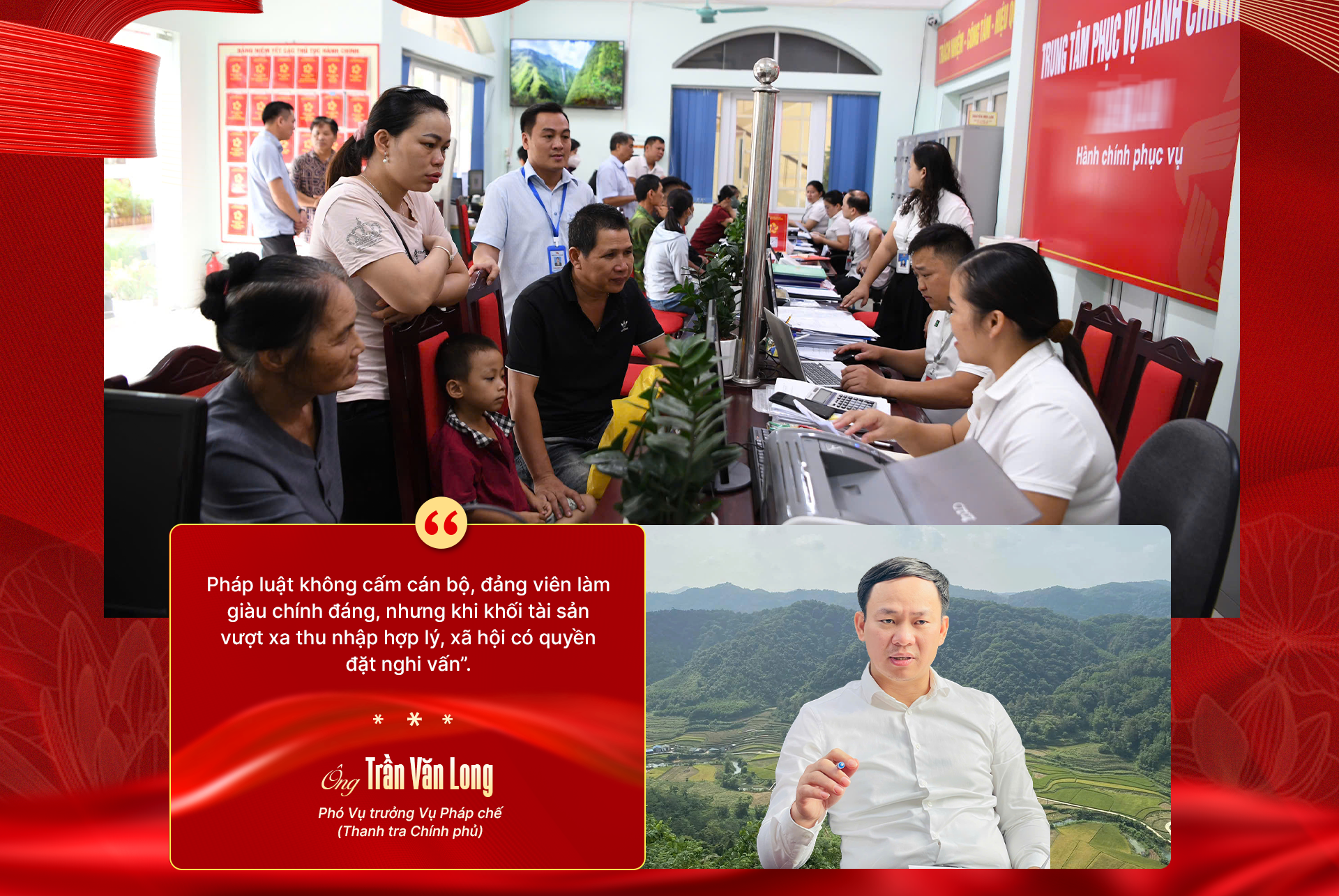
From the above figures, Mr. Long noted, these cases raise questions: where did the assets originate from, is there anything unusual? The awareness and responsibility of those who are obliged to declare, as well as the supervision work when publicly declaring assets, still have many problems.
According to him, the cause can be seen from two layers. The first layer lies in the process of asset formation. The law does not prohibit officials and party members from legitimately enriching themselves, but when assets far exceed reasonable income, society has the right to question. Although land and banking transactions are controlled, there are still "loopholes" for large assets to form without being detected.
The second layer is the “loophole” in the declaration and monitoring process. Some people deliberately conceal or ask others to register their accounts for them. “Bank accounts cannot be hidden. When drafting Decree 130, we discussed with the State Bank about providing information for verification, but so far this coordination has not been truly synchronized,” Mr. Long shared.
The 2018 Law on Anti-Corruption and Decree 130/2020/ND-CP are considered two legal pillars in controlling assets and income. In addition, Decision 56-QD/TW of the Politburo stipulates the coordination mechanism between Party and State agencies in controlling the assets of people with positions and powers.
However, Mr. Long said that there is still no unified authority between the Party and State control agencies.
"Article 30 of the Law on Anti-Corruption stipulates that the main agencies controlling assets and income are the Government Inspectorate and the Provincial Inspectorate. However, the Party's inspection agency also has authority, making it unclear in some cases who is the main contact point," he analyzed.

In addition, the regulation of "random verification" of officials' assets is expected to create deterrence, but without a synchronized national database, selection and verification are still mainly based on paper records, which are costly and inaccurate.
“Currently, there are regulations and procedures, but there are not yet strong enough tools. In many countries, tax, banking, and land data are connected, so it only takes one operation to detect abnormalities. Vietnam is currently facing many difficulties in verifying assets and income through agencies,” Mr. Long commented.
According to him, the upcoming draft Law on amendments and supplements will add regulations on the application of science and technology, online declaration, and the construction of a national database on asset and income control, creating a foundation for more automatic and transparent verification.
Verification - considered the "key" step - remains a major bottleneck. According to Decree 130/2020/ND-CP, verification is the process of checking and evaluating the truthfulness of the declaration. However, this work faces many difficulties due to the lack of data and cross-checking tools.
“The visible assets such as houses, land, cars, and bank accounts can be verified, but the hidden assets such as gold, precious metals, cash, and valuable ornamental plants... are almost impossible to quantify accurately. In fact, the situation of having other people stand in your name still happens,” said Mr. Long.
He said that some people do not declare truthfully, not intentionally, but due to lack of understanding of the declaration obligation, leading to errors. “Searching for verification of income and assets is like searching in the dark,” he said.
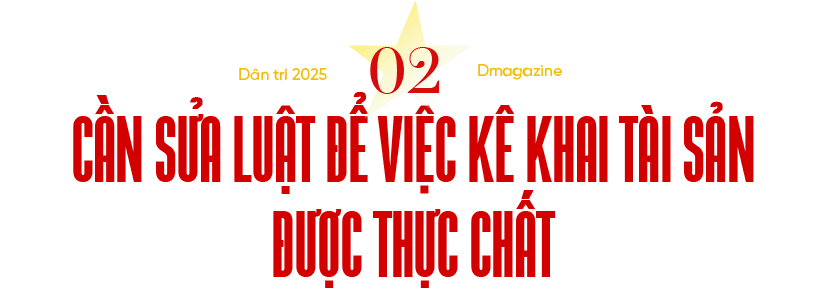
According to Decree 130 of the Government, the declaration of the person who is obliged to declare is posted at the agency's headquarters or publicly at a meeting including all cadres, civil servants and public employees. An important principle in asset control is to make it public for people to monitor. But in reality, in many places, the form of public disclosure is still a formality.
In Hoa An commune (Cao Bang province), Mr. Dam The Trang, Chairman of the Commune People's Committee, said that the declaration and disclosure of assets are carried out seriously, but people still have difficulty accessing information. "The commune posts the declaration at the People's Committee headquarters and makes it public at regular meetings. However, the mountainous area is large, many hamlets are far from the center, so people have few opportunities to see it directly," Mr. Trang said.
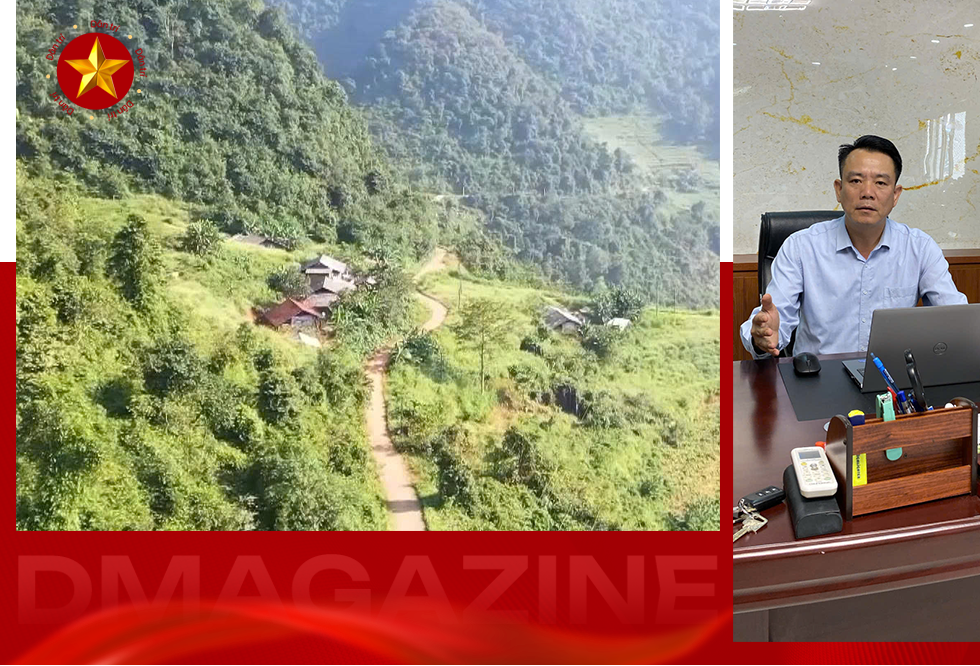
To overcome this, Hoa An commune has expanded the form of publicity by posting at the cultural houses of hamlets, posting on the Electronic Information Portal and sharing via the community Zalo group. Thanks to that, people can easily grasp the information. However, the locality still recommends that the province invest in digital infrastructure, telecommunications coverage, and provide specific instructions on personal information security to avoid disclosure or exploitation.
“Publicity at the place of residence is the appropriate approach, because people understand the lives of officials best. But publicity must have clear procedures and instructions to be both transparent and not violate privacy,” Mr. Trang added.
According to experts, for the public disclosure mechanism to be effective, it is necessary to switch from paper listing to electronic disclosure, accessible via identification codes, ensuring both transparency and data security. When people have access to information, social monitoring pressure will force officials to be honest in their declarations.
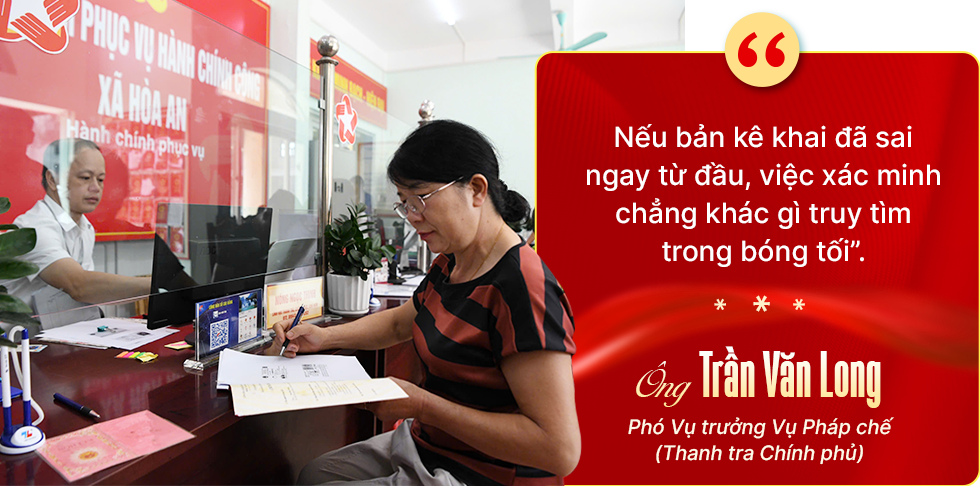
Mr. Tran Van Long said that the Law on Anti-Corruption is being amended to overcome current bottlenecks. There are 5 major orientations.
Firstly, the Law is expected to increase the additional declaration level from 300 million VND to 1 billion VND, in line with fluctuations in asset value. At the same time, it will perfect regulations on assessing anti-corruption work and digital transformation in declaration and inspection work.
Second, the subjects of declaration are narrowed down, focusing on those with positions and powers that are likely to give rise to conflicts of interest. Every year, only about 20% of declarants are selected for verification, of which 10% are randomly selected to increase deterrence.
Third, is to promote online declaration, data connection between tax, banking, land, vehicle registration agencies, etc. to form a National Database on assets and income - a core tool to help control transparently and objectively.
Fourth, it is necessary to clearly stipulate the order and procedures for verification, including a shortened mechanism in cases where the origin of assets is clear. At the same time, it is necessary to clarify the criteria for concluding on the truthfulness, completeness and reasonableness of the declaration.
Fifth, detailed instructions on how to verify specific types of assets such as gold, cash, bank accounts, land use rights, etc. to unify verification methods among agencies.
Currently, the Ministry of Justice is developing and submitting to the competent authority a Project for recovering assets without criminal proceedings. This includes a mechanism for recovering assets of unexplained origin.
“These adjustments represent a new mindset: shifting from administrative to digital and standardizing asset control processes,” said Mr. Long.
According to him, when all data is digitized, interconnected and independently monitored, the declaration will no longer be a formal procedure but will become a real tool for controlling power.
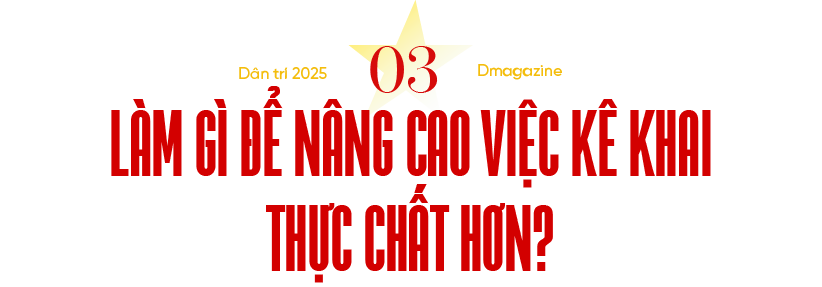

Mr. Long said that in order for asset declaration to no longer be a formality, it is necessary to improve the efficiency of the agencies that supervise asset declarations, and at the same time increase the self-awareness and honesty of declarants. This is a key factor to ensure transparency in verifying assets, income and preventing and combating corruption.
“Preventing and combating corruption cannot rely solely on regulations. If the declarant sees it as a ‘mandatory exercise’, no matter how strict the law is, it will not be effective. Declaring assets is a testament to the integrity and trust of officials in the people,” Mr. Long emphasized.
When databases are interconnected, transparent, and monitored at multiple levels, the declaration mechanism will change from an “administrative ritual” to a tool for controlling power. The reforms being promoted are expected to end the status of formal declarations, moving towards building a more honest, transparent, and accountable civil service.
“Hiding assets nowadays is almost impossible. The important thing is that we have enough mechanisms, data and will to force the truth to be transparent,” Deputy Director Tran Van Long affirmed.
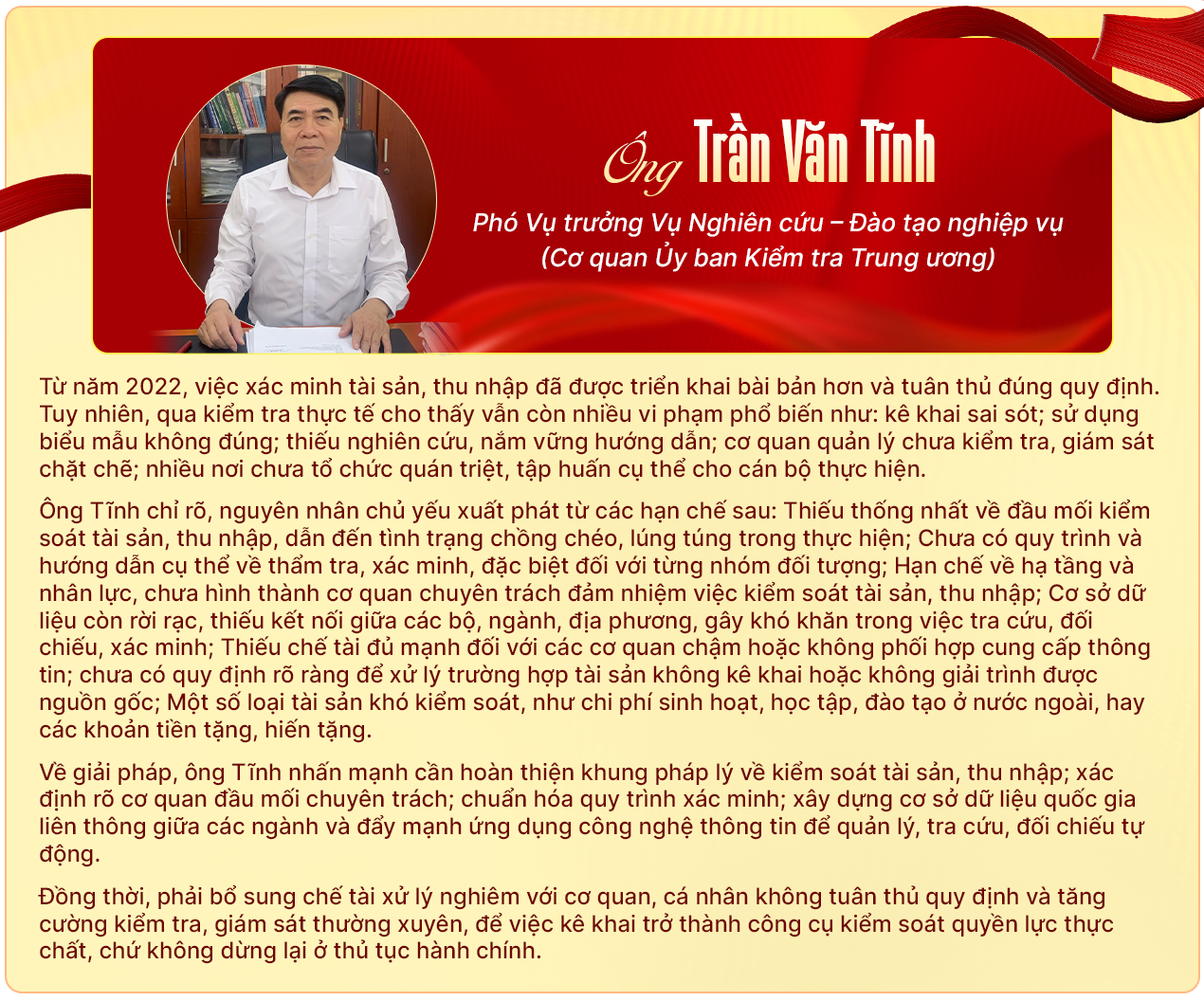
(More to come).
Source: https://dantri.com.vn/thoi-su/de-ke-khai-tai-san-cua-can-bo-khong-hinh-thuc-ky-2-lap-lo-hong-trong-khau-kiem-soat-20251031114812372.htm





![[Photo] Prime Minister Pham Minh Chinh attends the 5th National Press Awards Ceremony on preventing and combating corruption, waste and negativity](https://vphoto.vietnam.vn/thumb/1200x675/vietnam/resource/IMAGE/2025/10/31/1761881588160_dsc-8359-jpg.webp)
![[Photo] Da Nang: Water gradually recedes, local authorities take advantage of the cleanup](https://vphoto.vietnam.vn/thumb/1200x675/vietnam/resource/IMAGE/2025/10/31/1761897188943_ndo_tr_2-jpg.webp)

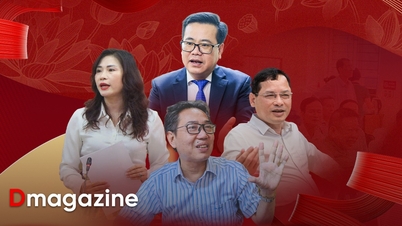
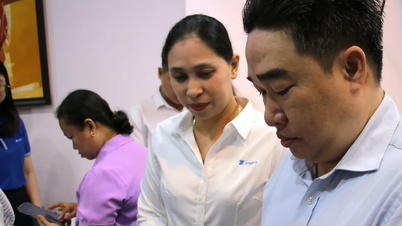

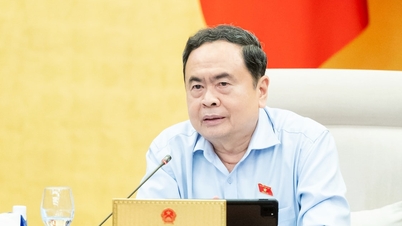

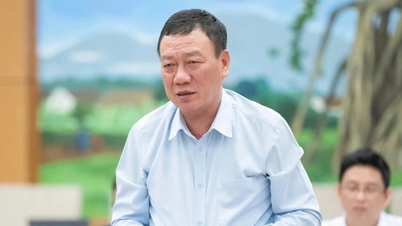
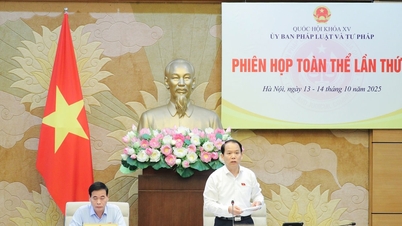


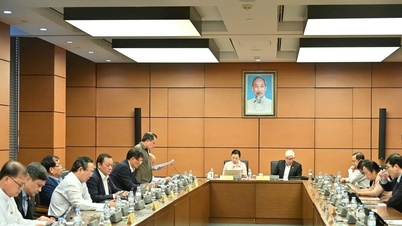
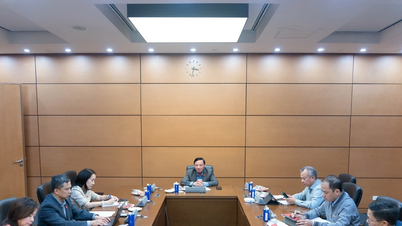

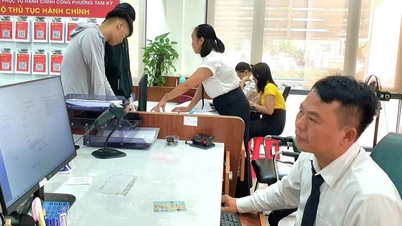
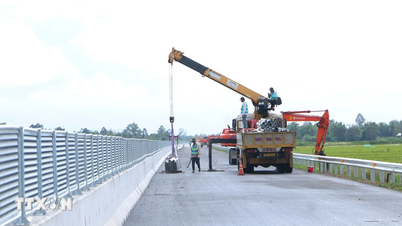
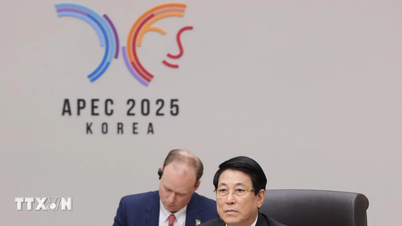
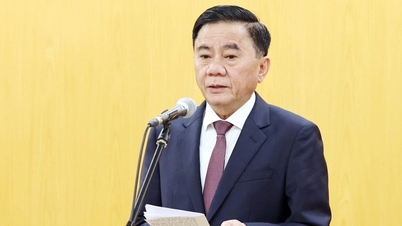






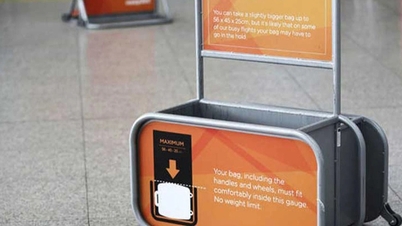


































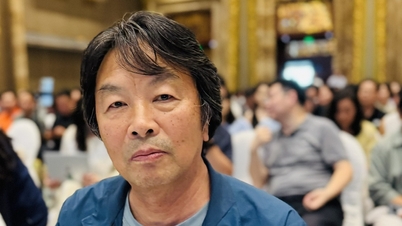

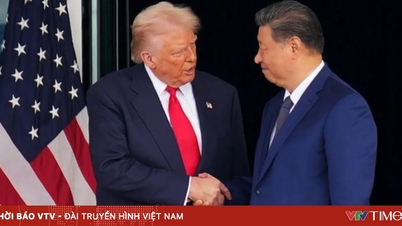

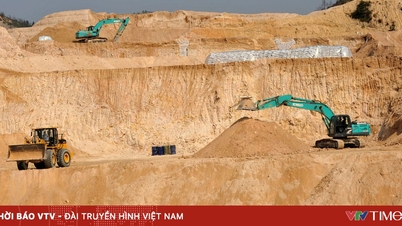
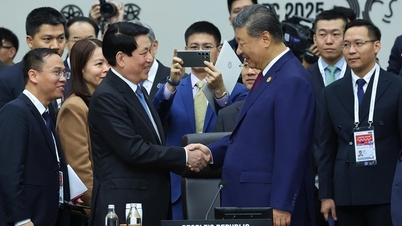
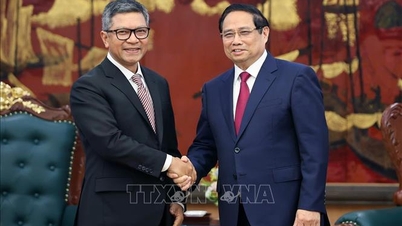
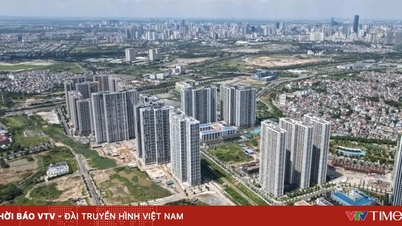





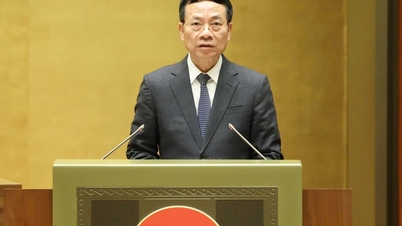
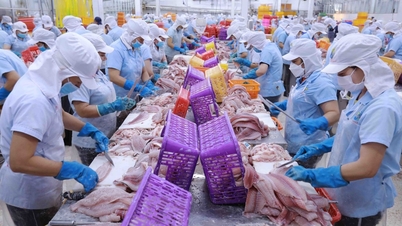
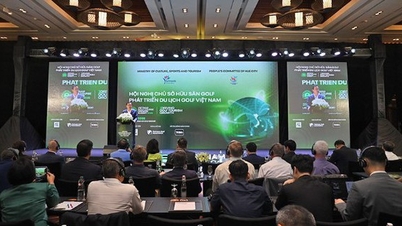
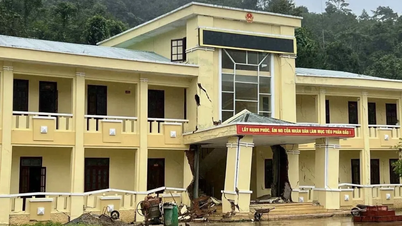
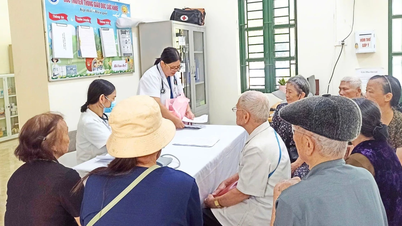

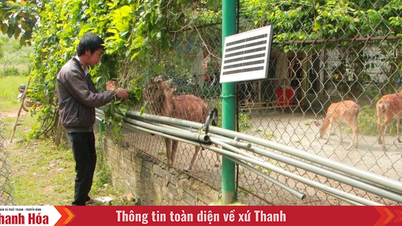




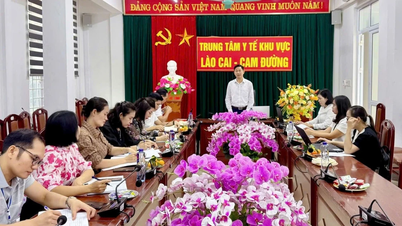














Comment (0)